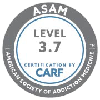The Spiral Theory of Growth in Addiction Recovery
The intricate journey of addiction recovery is often misconstrued as a linear progression toward a definitive end.
However, as we get into it, the mantra of “progress, not perfection” isn’t just a comforting slogan but a pillar in understanding and aiding recovery. This truth makes sense for people no matter where they find themselves in the recovery journey.
A Nonlinear Odyssey
Recovery from addiction is not a straightforward process. It’s a complex interplay of biological, psychological, and social factors. Neuroscientific studies reveal that addiction alters brain function in fundamental ways, changing how we perceive reward, risk, and motivation. The recovery process, therefore, involves gradually re-wiring these neural pathways – a task that is far from simple or predictable.
The Role of Relapse: A Step, Not a Stumble
In the world of addiction treatment, we have had to become comfortable with an uncomfortable truth: relapse is a common part of the journey. So, we have had to reframe it. Rather than viewing relapse as a failure, it’s increasingly seen as a stepping stone.
This perspective aligns with the notion of ‘progress, not perfection.’ Each relapse, handled with the right support and introspection, can provide valuable insights into the unique triggers and challenges the person faced that contributed to the return to substances.

The Spiral Theory of Growth in Addiction Recovery
Imagine progress as a spiral, not a straight line. This is the essence of the Spiral Theory of Growth—a concept that aligns with the ‘progress, not perfection’ mantra in addiction recovery. A spiral moves upward but loops around, often passing the same point. Each loop represents a cycle of learning and growth, even if it seems like revisiting old ground.
In the context of addiction recovery, this spiral model suggests that what might appear as setbacks or relapses are, in fact, integral parts of the journey. Each ‘loop’ back isn’t a regression but an opportunity to approach the same challenge with new insights and strategies. It acknowledges that growth is not linear and that repeatedly facing similar challenges is not only ordinary but necessary for deeper learning and development.
This perspective shifts how we view progress in recovery. Instead of trying for a flawless journey, the spiral model helps us embrace each phase, including the setbacks, as essential steps toward overall growth.
It’s about evolving understanding, deepening coping mechanisms, and reinforcing resilience. Each spiral loop adds a layer of strength and wisdom, slowly but surely leading to long-lasting change.
In essence, the Spiral Theory of Growth in addiction recovery celebrates the imperfect nature of human progress. It reminds us that moving forward often involves revisiting past challenges with a new perspective. It’s not about achieving a perfect state of recovery but about continually growing, learning, and evolving. Like the journey of recovery itself, this theory is a testament to the beauty and strength of embracing progress, no matter how imperfect it may seem.
Progress, Not Perfection Individual Journeys
The vast diversity in recovery paths is staggering. Some find help in structured programs like the 12-step model, while others approach it holistically. Still, others might discover equine or fitness most beneficial. This variance points to the importance of personalized treatment plans.
The Social Dimension: Community and Connection
Addiction, often born in isolation, finds its recovery in community and connection. Studies highlight the crucial role of social support in maintaining long-term recovery. This support can come from formal recovery groups, friends, or family. The key is a sense of belonging and a network that encourages progress, not perfection.
The Myth of the ‘Recovered Addict’
Society often expects a neat narrative: the addict, the struggle, the triumphant recovery. But real life is messier. We learn by example and by direct experience. The lived experiences of those in recovery often defy simple categorization. They remind us that recovery is a continuous process, not a destination.
A shift in perspective is needed for those on the outside looking in. Recognizing the nonlinear nature of recovery, the inevitability of setbacks, and the individuality of the journey can lead to more empathetic and effective support systems.

Progress, not Perfection: Embracing the Journey
The mantra of ‘progress, not perfection’ in addiction recovery is more than a comforting phrase. It’s a recognition of the complex, individual, and nonlinear nature of the recovery journey. By embracing this perspective, we can provide more compassionate and effective support to those navigating this challenging path. It’s not about the destination but the journey – a journey marked not by a singular moment of transformation but by countless small victories, setbacks, and learning experiences. As Gladwell might say, it’s about the small changes that can make a big difference.
Start This Journey Today
If you or a loved one is experiencing the challenges of addiction and feeling the setbacks, know that you’re not alone. Saddleback Recovery, a premier alcohol and drug detox center in Costa Mesa, CA, offers a supportive and understanding environment to start your journey.
At Saddleback Recovery, the focus is on individualized care, recognizing that each journey is unique. Whether it’s your first step toward recovery or continuing your journey, Saddleback Recovery is here to help.
Connect with us at Saddleback Recovery at (877) 843-5724 and begin the journey of transformation today. Remember, it’s about making progress, one step at a time.








